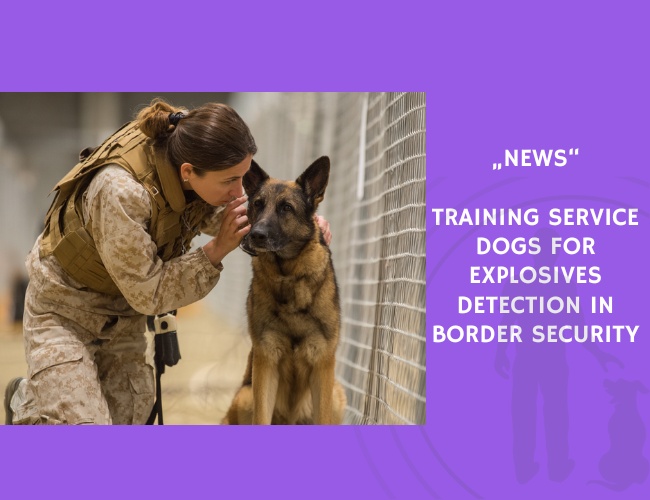A 2023 article by Dmytro Sofiyan and colleagues, published in the Pedagogical Sciences Series of the National Academy of the State Border Guard Service of Ukraine, details a systematic approach to training service dogs and their handlers for border security tasks. The methodology is framed as a scientifically based system, integrating specific skills, progressive training standards, and error-prevention strategies.
The training program is divided into three stages: initial, main, and final. Each stage builds on the previous one with preparatory exercises, development of a search and marking system, and the gradual introduction of complications to strengthen detection accuracy. Dogs are taught to recognize and mark explosives, weapons, and ammunition reliably, while trainers are instructed in avoiding mistakes that may cause the formation of unwanted conditioned reflexes.
Importantly, the approach emphasizes adapting training to individual canine behavior traits and ensuring inspectors integrate theoretical knowledge with hands-on practice. This dual training continues within border guard units, under conditions designed to closely replicate real operational scenarios.
By structuring canine detection training in this way, the study supports the development of highly capable service dogs and inspectors, essential for border security operations where precision and reliability are paramount.
Source: Софіян, Д., Серховець, С., Афанасьєв, А., Клепацький, С., & Ковальчук, О. (2023). Methods of Training Inspectors-Cynologists with Service Dogs to Search for Explosives, Weapons and Ammunition. Pedagogical Sciences, National Academy of the State Border Guard Service of Ukraine, December 15, 2023.










